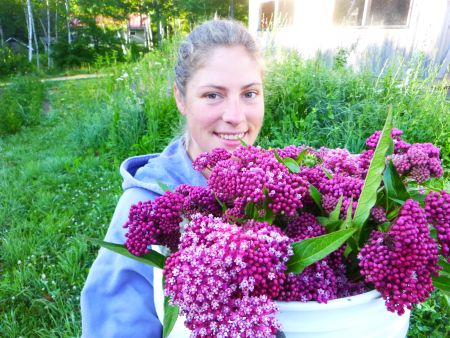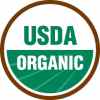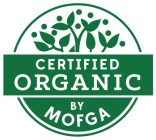Want To Plant More Flowers In Your Garden This Year?
Are you looking to make a change and plant more flowers in your garden this year?
Even if you are a veggie lover at heart (like we are!), flowers are an important part of the garden to provide habitat for the beneficial insects, birds, and pollinators that benefit the garden as a whole.
Our journey to native plants
It’s probably pretty obvious, but we are veggie farmers.
So why on earth are we talking about native plants? Are the veggies native plants?
No, our food plants are primarily non-native.
BUT native plants, especially herbaceous perennials, shrubs and trees are actually what our garden ecosystems rely on for healthy soil, pest and disease control, and diversity of insects, birds, and wildlife.
We just love plants of all kinds. And our veggies rely on a balanced ecosystem to provide diversity to keep pests in check, to provide for pollination for our fruiting crops, and to maintain healthy soil to grow healthy crops.
That’s how we got into growing native plants almost 10 years ago.
That and because many are beautiful and unusual in the garden and make great cut flowers for our CSA’s Pick-Your-Own (PYO) gardens.
We have seen a great increase especially in native pollinators and butterflies in our gardens since having plantings of native perennial flowers on the farm.
So much that we do not need to bring in any kind of bees or other pollinating service on the farm as we are able to rely entirely on native bees and other insects to do that work for us.
It’s pretty amazing and inspiring to see the humming and buzzing and fluttering that goes on around the farm’s gardens in the summer time.
What a welcome thought, during this sluggish spring, right??

What are native plants, definitions
Native plants are plants that have evolved to naturally occur in a particular environment. So many of the wildflowers and other woodland plants, shrubs, and trees that you see all over Maine are native plants.
Exotic plants (2 types)
Many of our regular vegetable garden plants are non-native, meaning they did not originate here in the Northeastern United States. In fact very few of them did. Many of our regular landscaping plants used in gardens and in commercial applications are also non-native plants. Examples include hostas, peonies, lilacs etc.
You may have heard of invasive plants. This is a third category. These are not only non-native plants, but they also have an aggressive tendency to escape and take over more than their fair share of space and crowd out native plants in the wild landscape. Examples include some honeysuckles, burning bush, purple loosestrife, etc.
Why native plants
Native plants are literally the backbone of the ecosystem. Most plants have various chemicals in their leaves that make them unpalatable or downright toxic to many herbivore insects. With native plants, however, our native insects have co-evolved resistances to these chemicals allowing them to feed on the leaves.
Our native insects have not overcome these barriers in non-native plants, meaning that exotic plants are unavailable as a food source to most insects.
A garden full of non-native plants is literally an empty plate to herbivore insects (think especially caterpillars). And a garden without caterpillars and other insects is an empty plate to songbirds that rely on caterpillars to successfully feed their babies…you see where this domino effect is leading.
This problem ultimately affects a vegetable garden because with bees, butterflies, and birds all in steep decline, pollination and natural pest control are threatened.
How to plant native plants
Many of the herbaceous perennial native plants can be planted right into your regular gardens and landscaped areas around your house and property. Others are more site specific. But typically, native plants are low maintenance plants that don’t require undo amounts of fertilizers or pest controls. After all, they grow wild here, right?! Some are even deer resistant.
We recommend starting with adding a few easy to grow native plants in your already established garden system and then going from there.
If you want to learn more details about how to grow native plants, join Farmer Gene at his free class on the topic!
- Landscaping with Native Plants for Pollinators
- Saturday May 11 at 9am
- At Ripley Farm, 62 Merrills Mills Rd, Dover Foxcroft ME 04426
- FREE and everyone is welcome
- Here is a link to the Facebook event page for this class.
How to get our native plants
After beginning to dabble in growing some native plants for the Fedco Seeds catalog (based in Waterville) in 2012, we are now working on scaling up this part of our business to offer retail plants on the farm and online.
We are focusing on herbaceous perennial plants that are native to the Northeastern United States. Our plants are one year old and they’ve overwintered here on our farm. We sell them bareroot, which means they are not potted. This helps keep the cost and the environmental footprint of each plant low by eliminating pots and potting soil. But you do need to have a place to put them in pretty quickly to prevent the root mass from drying out. When you come to the sale, you can get a copy of our Bareroot Planting Guide which will tell you how to handle the plants until you plant them.
Our very first native perennial plant sale is coming up and you are invited to come check it out! We will have a selection of a handful of our very favorite native perennial plants available at this fledgling sale. Here is a link to the availability for the 2019 Plant Sale.
- Saturday May 11 from 10am-noon.
- At Ripley Farm, 62 Merrills Mills Rd, Dover Foxcroft ME 04426
- FREE and everyone is welcome



Add new comment
Comments (2)
Native plants, etc.
Fri, 2019-04-26 06:58
Darn it! I cant make the
Fri, 2019-04-26 20:56